Trump stokes trade war as world reels from tariff shock
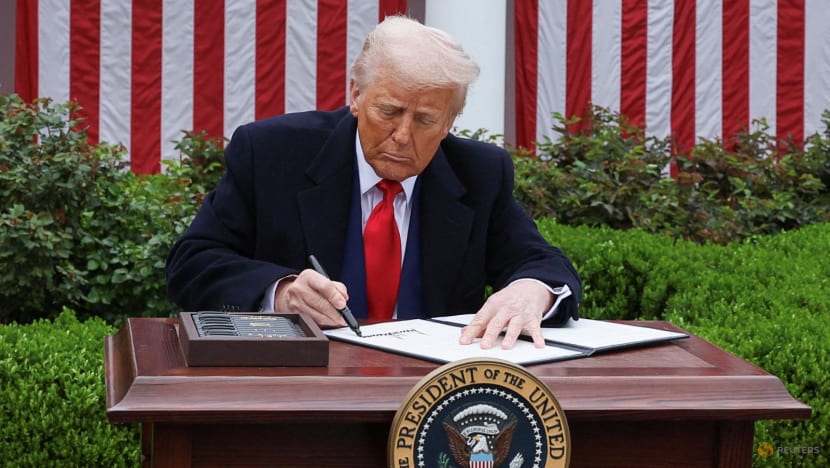
US President Donald Trump signs an executive order on tariffs, in the Rose Garden at the White House in Washington, DC, US, Apr 2, 2025. (Photo: REUTERS/Leah Millis)
President Donald Trump's move to impose sweeping tariffs on US imports on allies and rivals alike sparked threats of retaliation on Thursday (Apr 3), intensifying a global trade war that threatens to stoke inflation and raising fears of recession.
The penalties announced on Wednesday unleashed turbulence across world markets and drew condemnation from other leaders facing the end of an era of trade liberalisation that has shaped the global order for decades.
Trump said he would impose a 10 per cent baseline tariff on all imports to the United States and higher duties on some of the country's biggest trading partners.
According to Fitch Ratings, the effective US import tax rate has shot up to 22 per cent under Trump from just 2.5 per cent in 2024, reaching levels last seen around 1910.
As investors digested the news on Thursday, Asian stock markets in Beijing and Tokyo sank to multi-month lows. European shares were also down sharply in morning trade, with top goods exporter Germany hit hard.
Wall Street futures sank as investors shed riskier assets in favour of safe-haven bonds and gold.
Now facing 54 per cent tariffs on exports to the US, the world's No 2 economy China vowed countermeasures, as did the European Union - Washington's friends and foes united in criticism of measures they fear will deal a devastating blow to global trade.
"The consequences will be dire for millions of people around the globe," EU chief Ursula von der Leyen said, adding the 27-member bloc was preparing to hit back if talks with Washington failed.
US Treasury Chief Scott Bessent warned earlier that any such retaliatory moves would only lead to escalation.
Among close U.S. allies, the European Union was targeted with a 20 per cent rate, Japan with 24 per cent, South Korea with 25 per cent and Taiwan with 32 per cent. Even some tiny territories and uninhabited islands in the Antarctic were hit by tariffs, according to a list posted by the White House on X.
"This is not the act of a friend," said Prime Minister Anthony Albanese of Australia, a nation often described as America's "deputy sheriff" in Asia. "The (Trump) administration's tariffs have no basis in logic and they go against the basis of our two nations' partnership."
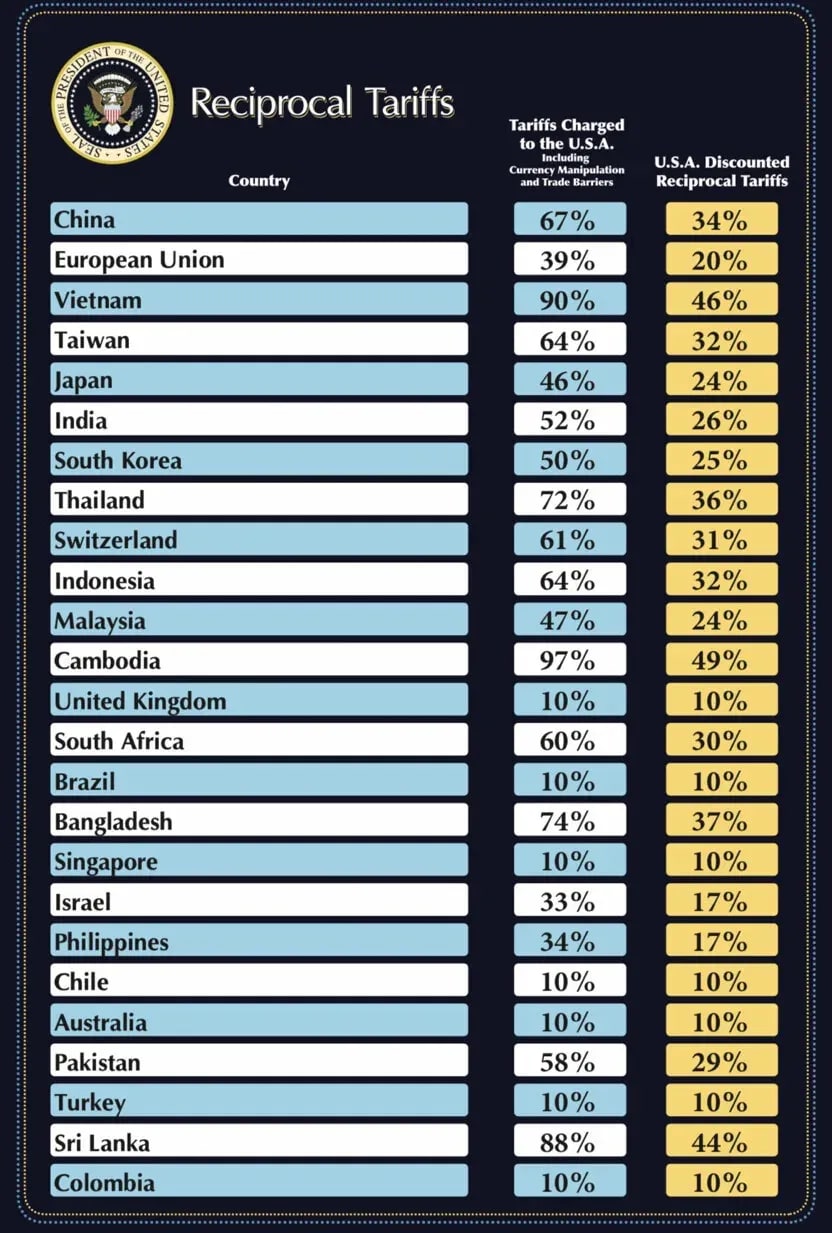
Trump said the "reciprocal" tariffs were a response to duties and other non-tariff barriers put on US goods. He argued that the new levies will boost manufacturing jobs at home.
"For decades, our country has been looted, pillaged, raped and plundered by nations near and far," Trump said.
Outside economists have warned that tariffs could slow the global economy, raise the risk of recession, and increase living costs for the average American family by thousands of dollars.
Canada and Mexico, the two largest US trading partners, already face 25% tariffs on many goods and will not face additional levies from Wednesday's announcement.
"This is how you sabotage the world’s economic engine while claiming to supercharge it," said Nigel Green, CEO of global financial advisory deVere Group.
"The reality is stark: these tariffs will push prices higher on thousands of everyday goods - from phones to food - and that will fuel inflation at a time when it is already uncomfortably persistent."
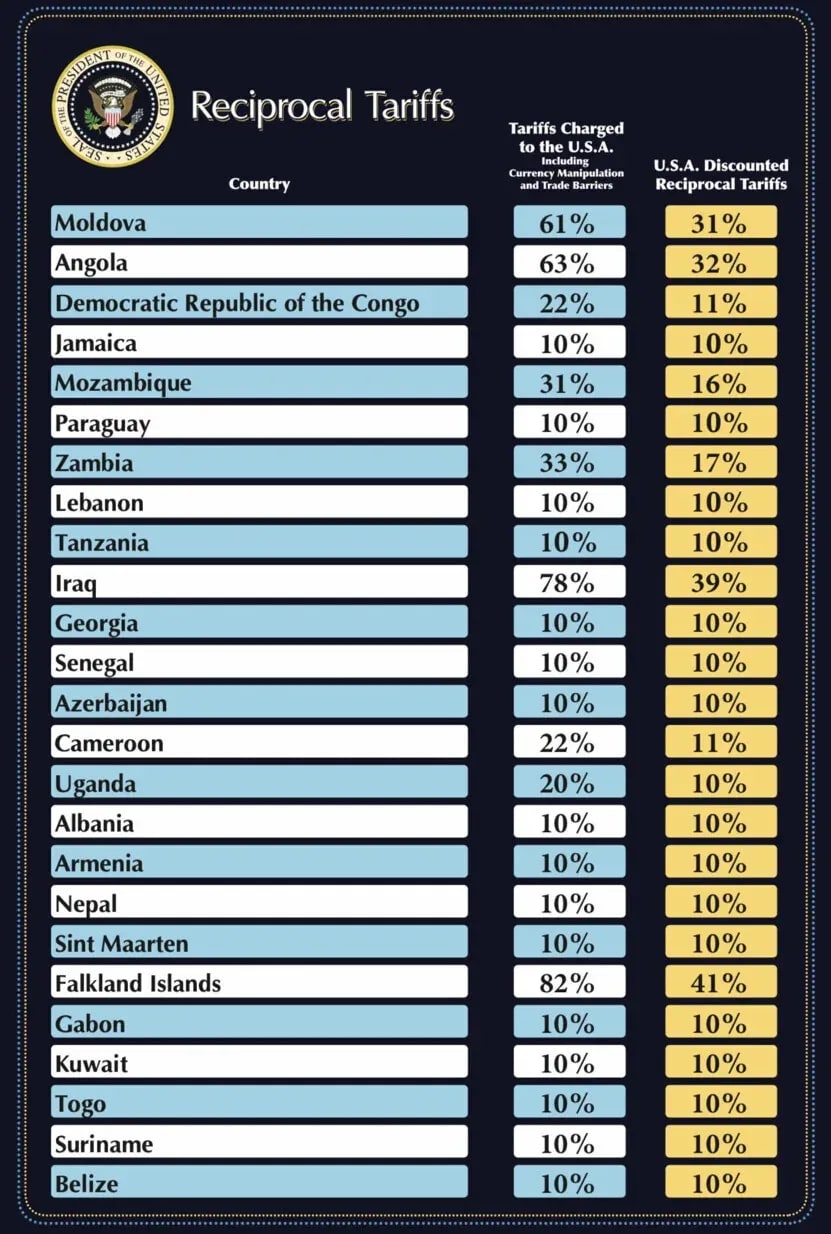
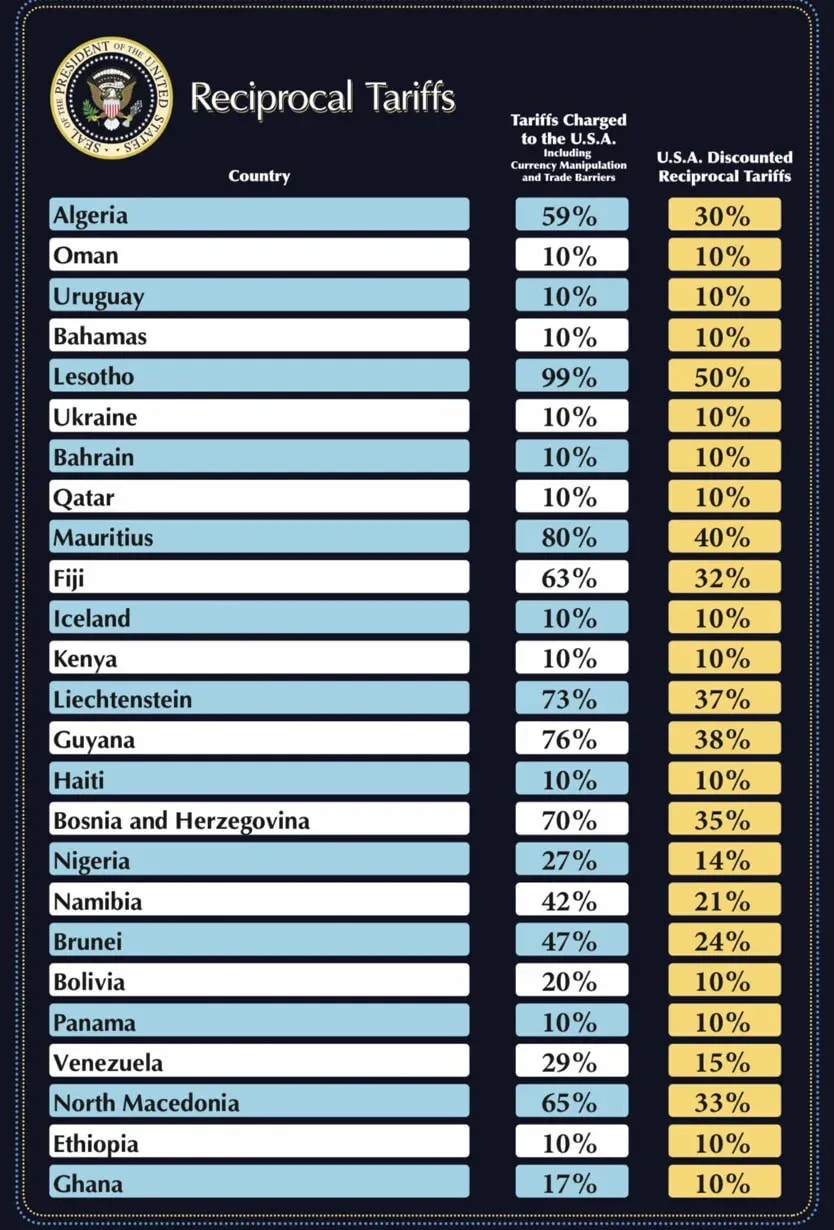
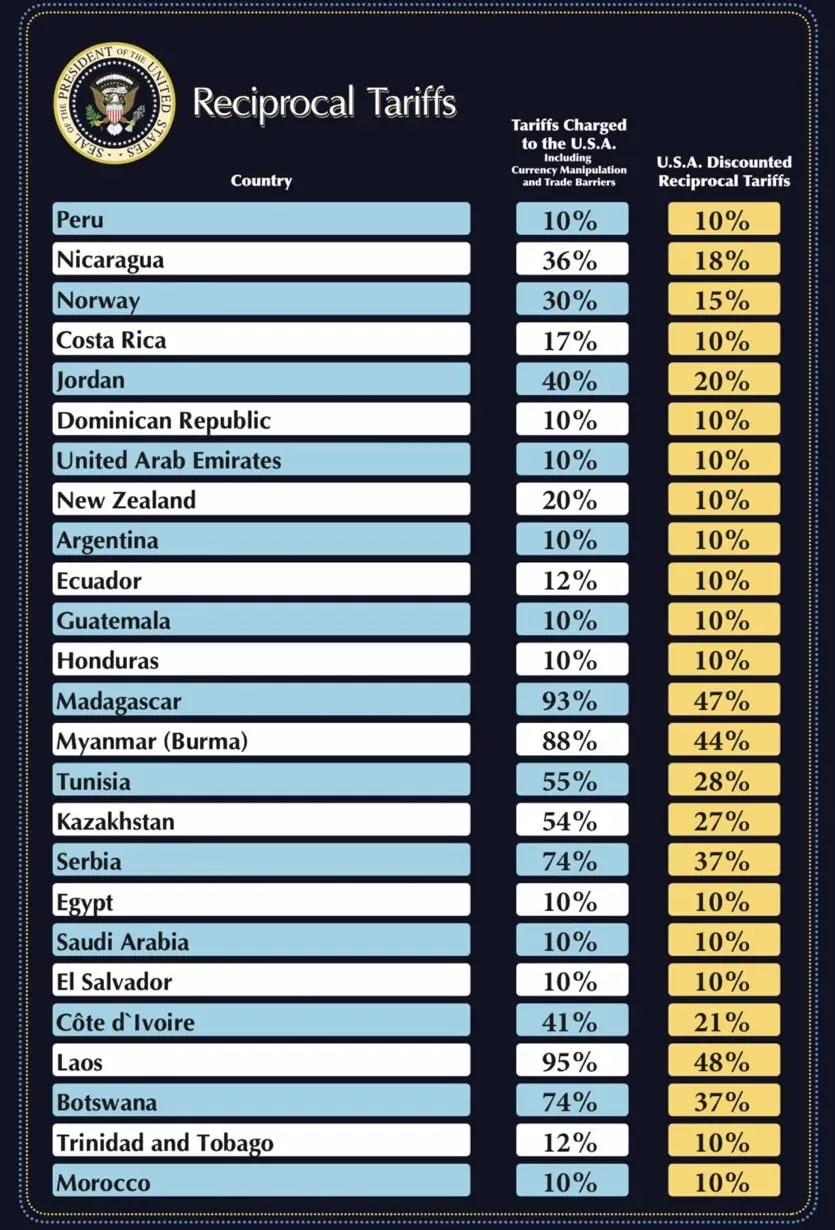
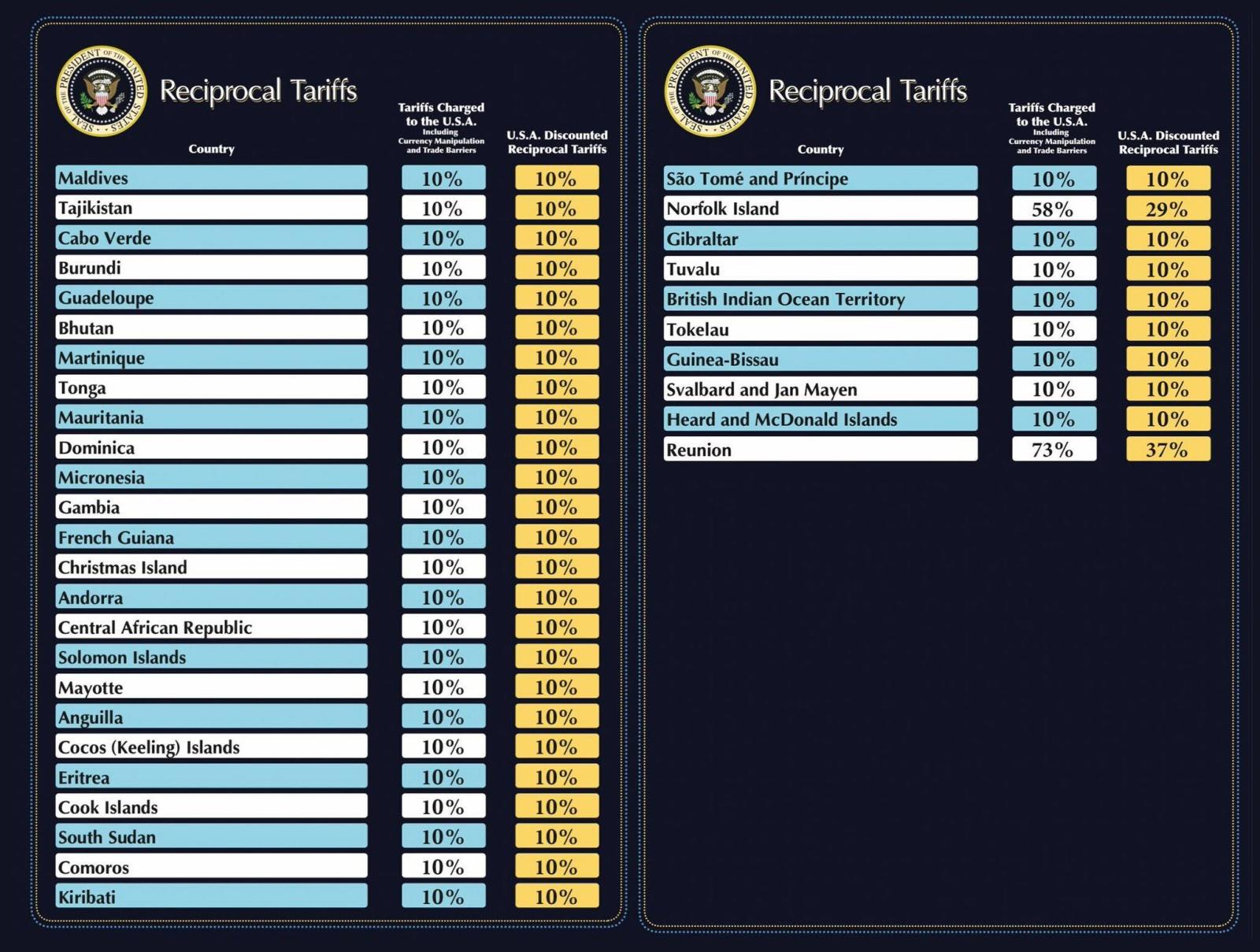
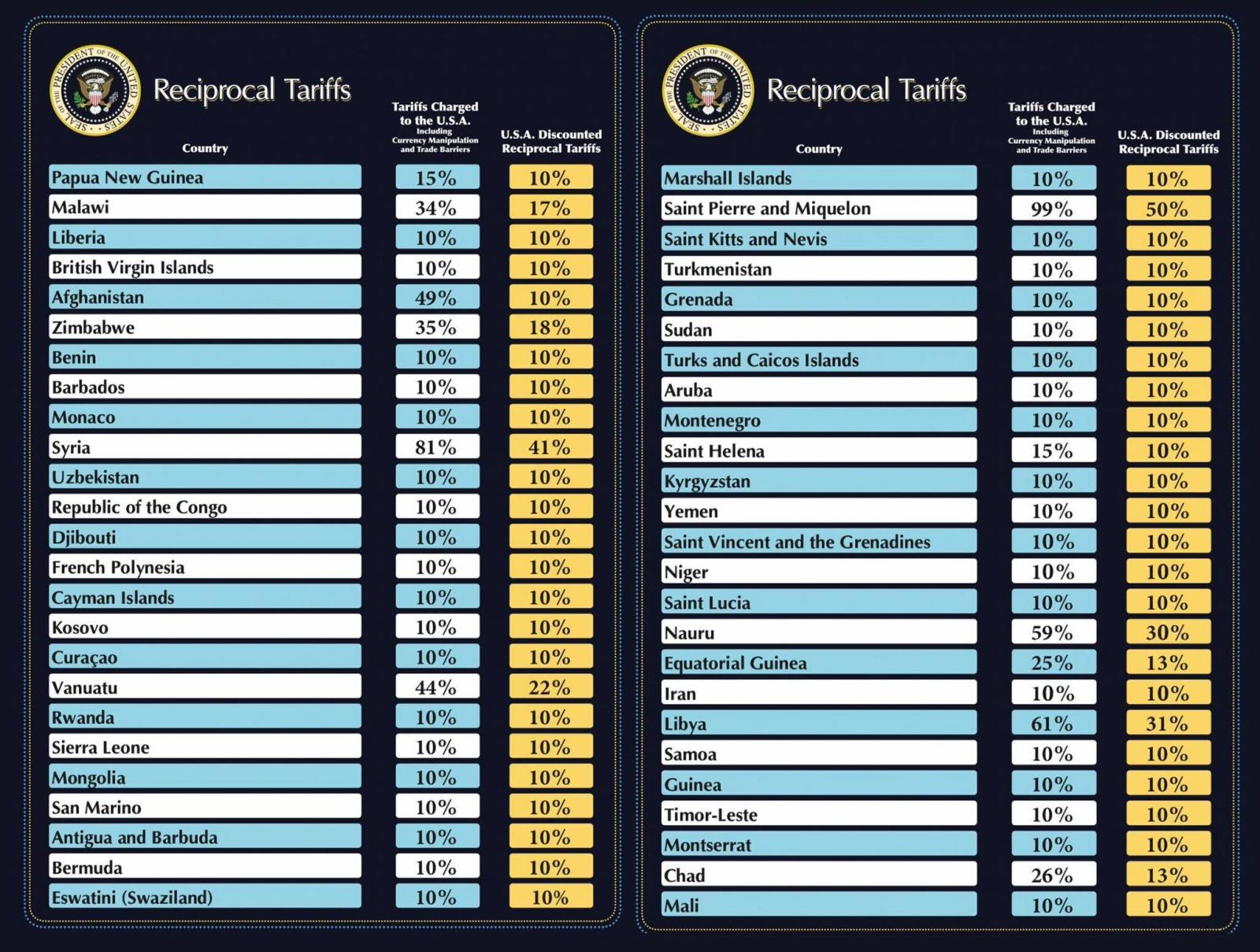
ENDING "DE MINIMIS"
The reciprocal tariffs do not apply to certain goods, including copper, pharmaceuticals, semiconductors, lumber, gold, energy and "certain minerals that are not available in the United States", according to a White House fact sheet.
Following his remarks, Trump also signed an order to close a trade loophole used to ship low-value packages - those valued at US$800 or less - duty-free from China, known as "de minimis".
The order covers goods from China and Hong Kong and will take effect on May 2, according to the White House, which said the move was intended to curb the flow of fentanyl into the US.
Trump is also planning other tariffs targeting semiconductors, pharmaceuticals, and potentially critical minerals.
Earlier in the day, the administration said a separate set of tariffs on auto imports that Trump announced last week will take effect starting on Thursday.
Trump previously imposed 25 per cent duties on steel and aluminum and extended them to nearly US$150 billion worth of downstream products.
Tariff concerns have already slowed manufacturing activity across the globe, while also spurring sales of autos and other imported products as consumers rush to make purchases before prices rise.
Now as the reality of the new tariffs sinks in, companies around the world must weigh up how to adjust, with their options limited and unpalatable for their customers.
"It's an immense difficulty for Europe. I think it's also a catastrophe for the United States and for US citizens," said French Prime Minister Francois Bayrou.
















